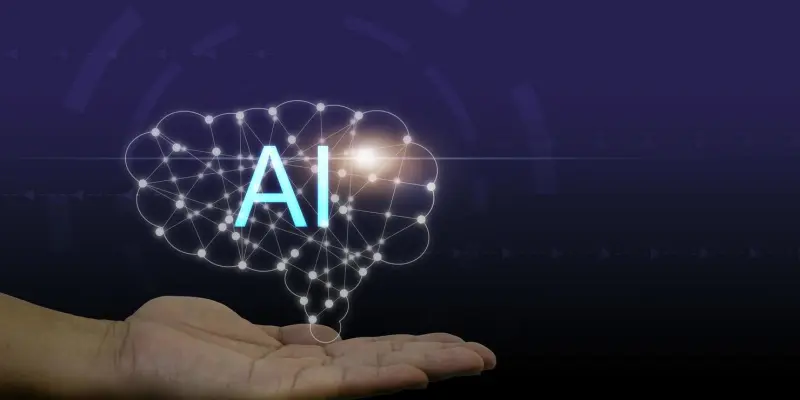In an era where technological advancements are reshaping traditional industries, the integration of artificial intelligence (AI) into tax services has emerged as a transformative trend. One significant development in this sphere is the collaboration between H&R Block and OpenAI. This partnership aims to harness the power of generative AI to transform the tax preparation process, thereby enhancing efficiency and accuracy. Recent statistics, such as a Harris poll that revealed 45% of respondents are open to using AI in future tax filings, indicate a growing acceptance and interest in AI applications in tax services. By leveraging AI technology, H&R Block plans to provide its tax professionals with advanced tools to offer personalized and precise tax advice to their clients.
Bridging Technology with Tax Expertise
Integration Process and Goals
The integration of AI tools into tax services is not merely about automating existing processes but fundamentally reimagining them to deliver enhanced value. H&R Block’s collaboration with OpenAI aims to equip over 60,000 tax professionals with the latest AI-driven tools. This initiative is set to redefine how tax professionals approach complex tax filings by combining OpenAI’s sophisticated models and H&R Block’s deep tax expertise through The Tax Institute. The Tax Institute comprises tax lawyers, CPAs, and enrolled agents who are consistently updated with the latest changes in tax codes at federal, state, and local levels. This ensures that tax professionals can provide accurate real-time advice. As a ‘force multiplier,’ this partnership looks to amplify the ability of tax experts to navigate evolving tax laws and life changes more efficiently, offering a more adaptable and proactive service.
Expecting Immediate and Long-term Impact
This AI integration is structured in phases, with the initial phase anticipated to roll out later this year. A significant launch is expected before the tax season in 2026. The success of this collaboration hinges not only on technology but also on effectively integrating AI into H&R Block’s existing frameworks. By carefully planning and implementing this phase, H&R Block seeks to demonstrate initial benefits, create robust AI-augmented tools for tax professionals, and set a foundation for long-term improvements in service. The partnership not only prepares for the immediate needs of the current tax season but also explores scalable AI solutions through a joint research initiative designed to assess AI’s impact on tax preparation.
Enhancing the Tax Preparation Experience
AI Tax Assist and Consumer Empowerment
The collaboration builds upon H&R Block’s previous AI endeavors, like the AI Tax Assist initiative launched in December 2023. This prior effort was key in setting the groundwork for integrating more sophisticated AI tools. The focus of AI Tax Assist was simplification, targeting self-filers, the self-employed, and small businesses, aiming to reduce the complexities involved in tax preparation. With nearly 70 million Americans managing their tax filings themselves, the introduction of AI tools signifies a critical modernization shift in how taxes are prepared. These advancements suggest that AI capabilities are becoming indispensable in managing diverse tax scenarios, making tax preparation more intuitive and accessible for a broader audience.
The Broader Implications and Future Outlook
The integration of AI into tax services reflects a broader trend toward embracing AI across various professional services to achieve greater efficiency. This shift is not only streamlined for practitioners but is also fast becoming a necessity to stay competitive and responsive to client needs in a rapidly changing environment. Looking forward, as AI continues to permeate this sector, the collaboration between H&R Block and OpenAI sets a precedent that could encourage similar partnerships across industries. As AI tools continue to evolve, there exists tremendous potential for ongoing innovation in tax practices, leading to more reliable and personalized services for clients nationwide.
Looking Beyond Initial Integration
In today’s rapidly evolving technological landscape, the integration of artificial intelligence (AI) into tax services marks a significant shift, modernizing traditional methods. Among the notable developments is the collaboration between H&R Block and OpenAI, aimed at revolutionizing tax preparation with generative AI. This partnership seeks to enhance efficiency and accuracy in tax services by tapping into AI’s potential. A Harris poll highlighted that 45% of respondents expressed willingness to use AI for future tax filings, illustrating a growing acceptance and interest in these technological advancements. By employing AI technology, H&R Block’s initiative is designed to equip its tax professionals with sophisticated tools, enabling them to deliver tailored and precise tax advice to their clients. Such advancements promise to redefine the dynamics of tax preparation, ensuring that clients receive insightful, data-driven guidance in an era where precise financial management is more crucial than ever.

